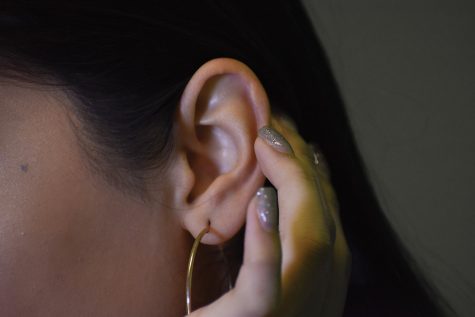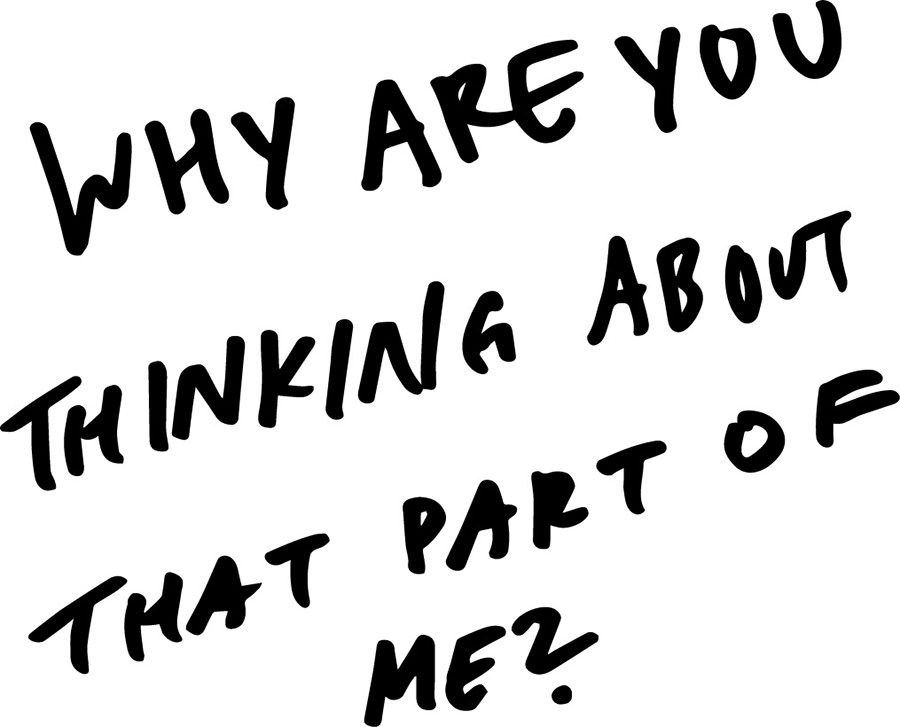Your donation will support the student journalists of West High School. Your contribution will allow us to purchase Scholarship Yearbooks, newsroom equipment and cover our annual website hosting costs.
In this cover story, three female West High students describe their experience with sexual harassment.
Voiceless
Taking a deeper look into sexual harassment culture at West.
November 15, 2019
Inappropriate touching. Unwanted sexting. Catcalling down the hallways.
All of the above have happened right here at West High.
Almost five years ago, WSS wrote a cover story titled ‘No Excuse’ about the culture of sexual harassment in West High at the time. Through detailed accounts of catcalling, the story revealed a climate of sexual harassment that continues on today.
And it isn’t just at West. According to a survey done by Stop Street Harassment, 81% of women and 43% of men have experienced sexual harassment at some point in their lives. While the #MeToo movement helped raise awareness and support for victims, has the overall climate around these issues on a community level changed?
In an effort to shed light on how close these issues still are to our community, WSS shares the stories of three students who discuss their experiences and how the student body and administration as a whole can work towards a better solution.

Jane Doe* recalls several experiences where she was catcalled while walking the halls at West High.
“I was walking during lunch and there was this dude sitting and he made a comment about my butt. He said something like, ‘Dang that ass.’ And when I turned around, he said, ‘But you ugly though,’” Doe said. “Once as I was delivering passes, a guy started catcalling and whistling at me. I was like, ‘Dude let me do my thing. I don’t need your comments.’”
Anyone can be catcalled no matter what they wear. Still, if they’re wearing revealing clothing, some students worry their chances of being catcalled are higher, which can make them anxious. Not only that, but some worry that others will use what they’re wearing as an excuse to blame the sexual harassment victim for their choice of clothing.
“[Wearing leggings] make me feel self-conscious. When guys make comments about your butt just because you’re wearing leggings, it makes you feel like you can’t wear [them] even though you should be allowed to wear pretty much whatever you want,” Doe said. “You shouldn’t be afraid to wear a piece of clothing because you think someone’s going to harass you about it.”
While catcalling happens frequently in-person, it also occurs online, with perpetrators sending or asking for unsolicited nude pictures.
“Sometimes guys will add me on Snapchat and try to talk with me. It gets to, ‘Will you send me pictures,’ and then immediately I usually say, ‘Hey, can you not? No one likes that.’ Girls do not like being asked for those kinds of pictures nor do they like being sent those kinds of pictures,” Doe said. “No one wants it to happen, because it makes you feel so violated. Why are you thinking about that part of me?”
At West, the attitudes surrounding sexual harassment across both genders differs.
“I have lots of friends who’ve been sexually harassed at West and I feel like it’s an issue. What’s weird is that some people don’t mind it or are even flattered, and that’s why some guys think it’s okay,” Doe said.
Moreover, many victims don’t feel comfortable speaking up about what has happened to them. In a survey done by Stop Street Harassment, only 10% of women and 5% of men that have been sexually harassed or assaulted filed a report.
“There’s definitely a thing about girls to keep quiet, because you don’t want to be a snitch. There’s a big thing about not
being the snitch because even though we have an anonymous text reporting thing at West, if the catcaller gets called out on it, they know who said it,” Doe said. “Girls just don’t bother anymore. It’s kind of like they’ve given up.”
Many victims have done just that. While the school has an anonymous text message system, many of the reports don’t specify the harassers by name. Therefore, the administration is limited in the ways it can address the issue. “The hard part is that sometimes the reports are so vague that we can’t figure out what’s happening, but sometimes people are very specific and they use [the harasser’s] name and what happened and we call [the harasser] in,” said Assistant Principal Molly Abraham. “My impression, and I could be wrong about this, is that kids generally feel comfortable [at West]. They’ve got somebody they will go talk to here. And so they don’t necessarily feel a big need to text it in anonymously.”
Reflecting on her experiences, Doe believes that awareness and education are the most important steps to raising attention and action.
“I think it’s important for awareness to be spread because I completely understand why a woman might not want to speak up, because it’s a really private experience. The fact that someone has called out a part of them that they might not even be comfortable with, especially in high school in the middle of puberty — it could honestly be a trauma in your life, something you might not want to bring up again,” Doe said. “I feel like educating about what harassment is to boys and girls is important, because anyone can be harassed. It’s way more important than just counting on women to speak up.”

At the age of 12, many students expect an average middle school routine where they take classes, hang out with friends and do homework. What they don’t expect are perverted comments to be made about their bodies. For Emma Furlong ’21, that situation became an unwelcome reality.
“My family took a vacation to LA. I just bought this romper I was wearing and … this guy comes up to me and was like, ‘Hey, you looking fine,’ and he was super creepy about it,” Furlong said. “I just remember feeling super uncomfortable and not really knowing what was going on.”
When women feel vulnerable and uncertain in situations like these, Furlong believes that it’s easier for them to be taken advantage of, regardless of the type of clothing that they wear.
“I’ve been catcalled when I wear more revealing things, but also I’ve been approached when I’m wearing just a sweatshirt and sweatpants,” Furlong said. “[Catcallers and harassers like] dominance, to see that they’re in control. I’m still always nervous whenever I walk past a group of guys — I’m always scared they’re going to say something. It happens when I’m walking downtown. Especially if I’m by myself, I feel pretty nervous about it.”
Furlong also believes that sexual harassment is so prevalent because there are misguided conceptions about the emotions a person on the receiving end should feel.

“I think there’s an expectation that [girls] should just take it because that’s just what guys do. I’ve also heard people say, ‘Why don’t you take it as a compliment?’ That really makes me upset because that’s not a compliment and we don’t want to be objectified,” Furlong said. “We’re just living our lives walking down the street.”
The atmosphere surrounding the topic leads victims to become more self-conscious. One study done by the University of Melbourne on 81 women revealed that being personally targeted or witnessing others being objectified was associated with a “substantial increase” in “self-objectification.” The National Women’s Law Center also found that 1 in 3 students who experienced harassment reported not wanting to go to school anymore, leading to poorer academic performance and attendance.
“When it happens, you kind of feel ashamed. Maybe it’s because you were wearing something more revealing and you think people will say that ‘She was asking for it, she wanted it.’ You think that it was your fault and it’s a really uncomfortable thing to talk about,” Furlong said.
According to Furlong, there’s power in shared vulnerability.
“This issue really relates to the #MeToo movement because it’s important to speak up and say, ‘This is what happened to me and it’s not okay,” Furlong said.

All too often, many people are exposed to sexual harassment at a very young age, before they even have a grasp on what the concept even means. Mallika Huynh ’21 was one of those who experienced this, recalling the time when, at 11-years-old, she first created an Instagram account without realizing that accounts could be set on private.
“A bunch of older men slid into my DM’s and would be like, ‘What’s up babe? You’re pretty sweet looking,’ like weird perverted pedophile comments, and I didn’t know how to deal with it,” Huynh said. “It was definitely uncomfortable because when you’re 11-years-old, you don’t want a bunch of old men asking you to come meet them in an alley.”
Huynh also received similar messages from people around her age that she found difficult to deal with.
“One was like ‘Hi, you’re cute. How old are you?’ And I felt like I was polite enough when I was like, ‘I’m probably too young for you.’ Suddenly, then he says ‘You ugly ass bitch,’” Huynh said.
As Huynh grew older, she began to experience these situations more frequently and increasingly in-person.
“A friend and I were walking downtown in the library and we were 12 to 13. This homeless man walks up to us, lifts up his shirt, and was like, ‘Ladies, you should see how I am in the bedroom. You should come with me.’ The library staff took it really seriously so they called the cops and he got arrested,” Huynh said. “Since then, there’s been a lot of stereotypical catcalling, like ‘Hey mami, what’s up? Hey sexy, how you doing?’”
As Huynh entered her high school years, the sexual harassment and catcalling she experienced became more physical.
“At a football game some random guy who’s friends with one of my friends comes up to me and starts playing with my hair and touching my body and grabbing my ass and was like, ‘You fine, you know that?’ I don’t really understand how they think that it makes someone feel nice. I felt uncomfortable. [They were] in my space,” Huynh said.
The attitude that men should do what they want and that women are at the fault of the issue is felt differently around the world.
Huynh experienced this firsthand in India when she was 14, where a family acquantince touched her inappropriately without her consent. After finding out about the altercation, her mother was able to get the man fired from his job.
“I didn’t really know what was happening at the time. The man didn’t even seem to think that what he did was wrong,” Huynh said. “There’s a view set towards women in India — it’s a very cultural thing and that’s not excusable when women are oppressed and put under these gender roles that are weighing them down. When you see women being gang raped and their rapists not even brought to justice, there’s a huge issue there and it’s not really spoken or known about.”
According to the Thomas Reuters Foundation’s survey of 550 experts on women’s issues, India was found to be the most dangerous nation for sexual violence against women. In another report by the Livemint, about 99% of cases of sexual violence in India go unreported, due to cultural attitudes and a conviction rate as low as 18.9%.
Part of the reason why Huynh believes the issue isn’t spoken about more is because when women do speak up, their voices often become lost or silenced. Huynh felt her own voice was drowned when she spoke up to a very close figure in her life.
“When I told someone really close to me, a huge adult figure in my life, they first asked me what I was wearing and what I was doing. He was like, ‘Maybe he didn’t know better, maybe you don’t understand what he was doing.’ So you’re willing to defend a guy you don’t know over someone you’ve known your entire life? That’s not even just for me, it’s common everywhere,” Huynh said. “When there is a surge of women coming forward, everyone’s like ‘Oh, they just want to lie,’ but no — it’s empowering when other women come forward because you feel like you have the ability to do that as well.”

Reflecting on her experiences from her childhood to the present, Huynh realizes the inevitable reality that women still have to face on a day-to-day basis.
“This is a real thing in the world. Unfortunately, we have to be prepared. In reality, women still have to fear for their safety walking down the street. A lot of times when men do these things, women don’t necessarily know how to react,” Huynh said. “People are always like, ‘Oh, it’s fine now. It was so much worse back then.’ Just because we made progress doesn’t mean there’s no more to be made.”
Through sharing her own personal voice and letting it be heard clearly, she’s hoping to see more awareness about sexual harassment in the future.
“If you’re uncomfortable, still talk about it. Talking about it recognizes it as an issue and that’s what everyone needs to do because there’s so much denial,” Huynh said. “This is an issue and once we give it that recognition, then we can take the steps to move forward. And hopefully, provide a space where women feel safer and be more able to speak out.”
What to be done?
Being a victim of sexual harassment can bring a flurry of emotions along with it. Some feel guilt, convincing themselves it was their fault. Others feel hopeless, thinking that even if they reported it, nothing would be done. These feelings, along with others, cause victims to stay in the shadows instead of reporting the incident. It can be especially hard to talk to teachers and adults about the harassment claims, which poses a problem for West’s administration. If students don’t report it, then how will we be able to crack down on harassment at West?
Luckily, the administration has a solution. Through a recent training program called Mentors for Violence Prevention (MVP), a few staff members at West have been introduced to a new way to handle sexual harassment prevention.
“The whole gist of the program is to train juniors and seniors how to give lessons to freshmen about verbal, emotional, technological, physical and sexual abuse,” said Abraham, who attended the session.
The goal is to have the program in full swing by next year. Juniors and seniors would be trained on the issues, and then teach their assigned freshmen various lessons. The program has the ability to become an immensely powerful tool, especially because of the newly arising challenges regarding social media. Having underclassmen being taught by students who have first hand experience with modern issues could make the experience more relevant and realistic. Not only that, but students in general can easily trust other students.
Abraham recognizes the power of student voices, which is why she’s confident the program will help the school climate. “If we ever involve our students, it always goes better because they just step up, show leadership and they know how to talk to other kids,” Abraham said. “Kids listen to kids. I think juniors and seniors could do a better job talking to freshmen about these issues than adults can.”
Even though the program won’t start until next year, West currently has strict guidelines against sexual harassment. All staff members are briefed on procedures through an online training program. The program quizzes them on how they would react to certain situations, including recieving a report of sexual harassment. According to French teacher Sydney McDermott, who was hired four years ago, sometimes the training isn’t enough. “I can probably pass a test over what I’m required to do, but in the event that it happens, that’s a whole different story,” McDermott said. However, students can be assured that any teacher in the building will be able to help them in some way. The school has a mandatory reporting policy, so if a student reports sexual harassment to a teacher, they’re required to report it to the administration.
In order to report an incident of catcalling, the first step is for the affected student to reach out to a trusted adult. After hearing the report, the adult will pass it on to the administration, where the assistant principals will handle it. “[Once receiving a report] I would have a conversation with that person [who was harassing others],” Abraham said. “Lots of times, a conversation is all it takes, actually. Kids will sort of say, ‘Okay, oops, I shouldn’t have done that.’” If the harassment is a repeated offence, administrators become more involved. The student’s parents are brought in, and the harasser may have to speak with the district equity coordinator as well.
Despite these procedures, students are often afraid to speak out about their experiences, especially to a teacher. In recent years, the ICCSD has formulated a response to combat these fears: the ‘Say Something’ campaign. Since the launch, an anonymous text message line was formed to allow students to report not only sexual harassment, but bullying or assault as well.

As assistant vice principal, Abraham is copied on these reports, and the procedure in dealing with harassment is often the same: talk to those harassing others about how what they did was wrong. “The difficulty is, all I can really do is have a conversation with the person, because … I can’t say you did this to this person on this day,” Abraham said. However, Abraham is confident in the program. “Typically, once we start the process, kids do stop.”
The introduction of social media has also posed challenges for the administration. Screen names give a perception of safety or anonymity, which can encourage attackers to sexually harass others because they believe they can’t be tracked down. “It gets complicated because screen names aren’t always … the person’s name,” Abraham said. “Sometimes kids will say, ‘Well, I don’t know who that is, that wasn’t me.’”
In general, a large part of sexual harassment culture is because of students’ mindsets. Often times, harassers don’t know what they’re saying is inappropriate. “I don’t exactly know what the school could do about it. I think even if the school brought it up, it wouldn’t make a difference and people would just laugh it off,” Furlong said. “They could reprimand students for it, but I don’t think the student would respect the request, and the harassment wouldn’t stop. The person who reported it might be harassed even more … if people found out [they reported it].”
Despite this, West’s health curriculum is trying to combat these issues. By teaching what’s inappropriate and what’s not, the aim is to help students realize what they’re saying has the ability to negatively affect others. “I do feel that oftentimes, young people and adults say things when maybe they’re just joking around, and they’re not meaning to be mean or hurt someone’s feelings, but those remarks are inappropriate and we need to think before we speak,” said Paul Rundquist, West’s health teacher.
Another issue that promotes sexual harassment is a fear among students of speaking out. “I think that kids are afraid to report things because they feel like they’re going to be in trouble, or they feel like they did something that caused it to happen to them,” McDermott said. “For example, if a student doesn’t feel comfortable reporting behavior because they’re not sure what’s going to happen to them, that’s going to keep that kid from saying anything.”
Rundquist believes the key to encouraging victims to stand up is keeping the conversation going. “Hopefully the more we discuss it, the more people will be willing to step up and say something,” Rundquist said. “I think it’s on us as educators to make sure that we continue to discuss it and discuss the importance of saying something.”
You can help by speaking out about your experiences. If you or a friend is struggling, make sure to reach out to a trusted adult here at West, or submit an anonymous message by texting @SaySomething to 35134. In your message, make sure to add specific details. For cases involving sexual assault, RAINN’s confidential national helpline is availiable 24/7 by calling 800-656-4673. RAINN also has an online chat feature. You can access it by going to online.rainn.org. For more information, be sure to visit RAINN’s website. There are also specific hotlines for street harassment, males who have been a victim of sexual assault and more.







